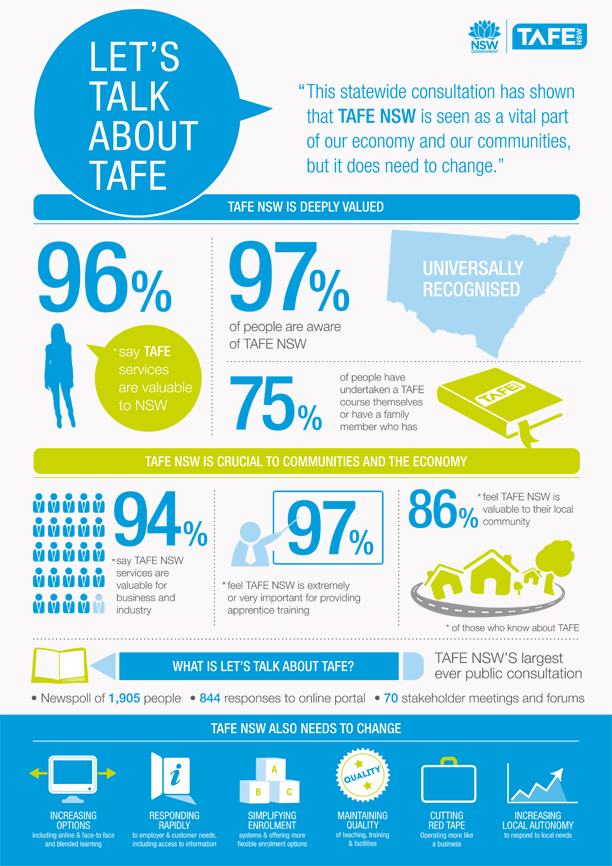Compare courses from top Australian unis, TAFEs and other training organisations.
Let’s Talk About Tafe
TAFE is currently assessing how it’s seen in the community through the initiative, ‘Let’s talk about TAFE’. We decided to look at the history of TAFE NSW to find out where it all started.
Julia Watters
Jun 21, 2025
When it comes to practical, skills-based education in Australia, TAFE remains a trusted and accessible option. Whether you’re finishing high school, changing careers, or reskilling for the future, Technical and Further Education (TAFE) institutions offer a wide range of nationally recognised qualifications that open doors to real jobs.
But how did TAFE begin—and why is it still relevant in 2025? Here’s a look at TAFE’s roots, how it evolved, and why it continues to play a vital role in shaping Australia’s workforce today.
The History of TAFE in Australia
TAFE’s origins date back to Australia’s early technical training systems. The country’s first technical education facility was the Sydney Mechanics’ School of Arts, established in 1833—long before the University of Sydney opened in 1850.
In 1878, the School of Arts evolved into the Sydney Technical College, offering practical training in subjects such as engineering, architecture, and science. By 1883, the New South Wales government formally took over financial responsibility, eventually forming a dedicated Department of Technical Education in 1949.
It wasn’t until the 1970s that the term TAFE (Technical and Further Education) was introduced as a national system of publicly funded technical education.
What Does TAFE Offer Today?
TAFE remains a core part of Australia’s vocational education and training (VET) system. It delivers practical training that leads directly to jobs across a broad range of industries.
TAFE Courses Include:
- Certificates I–IV
- Diplomas and Advanced Diplomas
- Short courses and skill sets
- Apprenticeships and traineeships
You can study aged care, early childhood education, trades, information technology, beauty therapy, business and administration, and dozens of other areas.
Why TAFE Is More Relevant Than Ever in 2025
Australia is currently facing skill shortages in key sectors such as health care, construction, and technology. TAFE plays a critical role in addressing this by providing job-ready training that is flexible, accessible, and aligned with employer needs.
Some TAFE Facts (2025):
- Over 500,000 students are enrolled in TAFE NSW alone, across campuses and online.
- Most learners study part-time or online, making education more accessible for working adults, parents, and regional learners.
- Free TAFE programs are available for eligible students in priority skill areas—check your state’s education department for current offers.
Learn more about current skill priorities at YourCareer.gov.au.
What Makes TAFE Different from University?
While universities are typically more academic and theory-based, TAFE focuses on hands-on, vocational training. TAFE is ideal for learners who want:
- A shorter course leading to employment
- Nationally recognised qualifications
- Practical skills and real-world experience
- Pathways into university through credit transfer
TAFE can also be a valuable stepping stone for those who need a more flexible or affordable way to enter a new industry or complete a qualification.

Is TAFE Right for You?
If you’re seeking skills for an in-demand career, want to change industries, or need flexible, job-focused training, TAFE could be a great fit. It’s especially useful if you’re looking to become:
- Aged care or disability support worker
- Childcare educator or education aide
- Electrician, carpenter, or plumber
- Hairdresser, beauty therapist, or nail technician
- IT support specialist or cybersecurity analyst
Start here: Browse online courses in your area of interest or visit TAFE NSW for more details about public TAFE options near you.
About the author
Julia Watters covers topics in career development, educational guidance, and workplace success in her Career FAQs articles.
